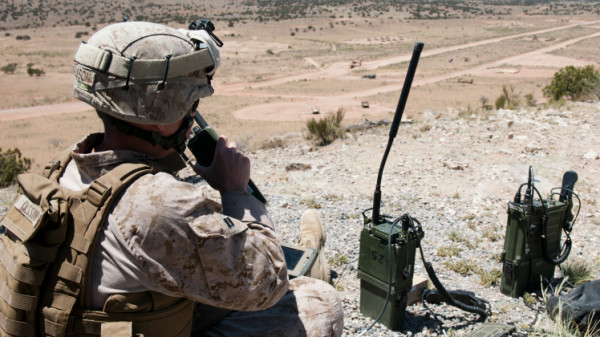

The military’s investigation into Marines’ non-consensual distribution of explicit photos of their fellow servicewomen is beginning to take shape. On Thursday, Democratic Rep. Jackie Speier of California announced that the Naval Criminal Investigative Service has identified more than one thousand members of the “Marines United” Facebook group that’s become synonymous with misogyny and sexism in the U.S. armed forces.
According to Speier, investigators have so far identified more than 1,200 members of the 30,000-strong Facebook group, which disappeared after journalist and veteran Thomas Brennan published an explosive investigation into the Facebook group and its role in facilitating a culture of revenge porn among the Marines. Those suspects include at least 700 active-duty Marines and 150 in the reserve.
Speier, a ranking member on the House Armed Services Military Personnel Subcommittee, revealed details of the NCIS investigation to the press while introducing new legislation designed to amend the Uniform Code of Military Justice to “explicitly prohibit the dissemination of non-consensual pornography.”
Related: The Rise And Fall (And Rise) Of ‘Marines United’ »
Speier’s Servicemember Intimate Privacy Protection Act would broaden the military’s ability to prosecute troops for so-called “revenge porn,” in which a jilted lover distributes explicit media of a partner initially made with their consent in a juvenile act of vengeance. In the current version of the Uniform Code of Military Justice, Article 120(c) only applies to media taken without the subject’s consent, like acts of voyeurism — and servicewomen, veterans and civilians who agreed to take private photos are left with little recourse.
“In 2013, I made it clear that these attacks undermined the morale of our troops, affected our combat readiness; and diminished our military in the eyes of our enemies. And yet, here we are four years later, and nothing has changed,” said Speier. “The toxic rot that has pervaded our military culture has spread. Hundreds of women, in all branches of the military, continue to find their careers and lives destroyed by the complete failure of military leadership to protect their troops and enforce their creed of good order and discipline.”
But Speier’s attempt to stamp out that toxic rot are inherently flawed. The UCMJ only applies to active-duty troops and reservists, leaving veterans protected from military courts by their DD-214 discharge papers. That means, based on the figures presented by Speier on Thursday, some 350 veterans identified by NCIS may avoid prosecution for their crimes.
In a hearing before the Senate Armed Services Committee on Tuesday, Marine Corps Commandant Gen. Robert Neller stated that an estimated 500 of Marines United’s thousands of members were believed to have accessed troves of explicit media on Dropbox and Google Drive accounts analyzed by NCIS.
That doesn’t mean those women violated by the predators of Marines United are completely without recourse. Currently, 34 states and the District of Columbia have revenge porn laws on the books, and civilians have increasingly utilized burgeoning variations of the legislation to go after their tormentors.
But those women will have to wait until NCIS completes its investigation into the Facebook group and its activities to face their abusers in the flesh; the only avenue for the public to obtain information on pending investigations is through the Freedom of Information Act. And there’s always the small risk that a lengthy NCIS investigation will extend beyond a state revenge porn law’s statute of limitations.
“From my experiences in the military, there is a deeper cultural issue that needs to be addressed because you are not going to be able to police people 24/7,” said Rep. Martha McSally, a Republican from Arizona and retired Air Force colonel, during the Senate Armed Services Committee hearing on Tuesday. “The long-term solution is this deeper cultural issue and that’s where I’m going to be on them and all the services pretty aggressively.”
